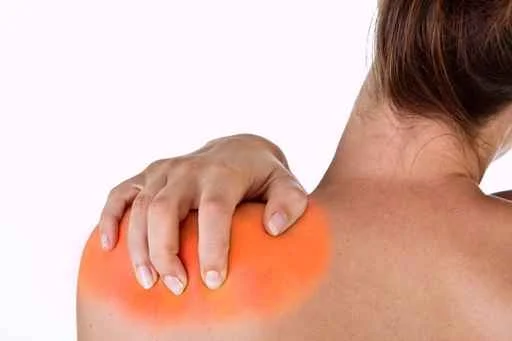Frozen Shoulder Treatment in Saratoga Springs
Regain Shoulder Mobility and Reduce Pain Without Surgery
If you’re experiencing pain, stiffness, and limited shoulder movement that seems to be getting worse over time, you may be dealing with frozen shoulder, also known as adhesive capsulitis. At Turning Point Chiropractic in Saratoga Springs, we offer customized, non-invasive treatments to help restore function and reduce pain—so you can get back to doing what you love.
What Is Frozen Shoulder?
A Common but Often Misunderstood Condition
Frozen shoulder is a condition where the shoulder joint becomes inflamed and tight, leading to significant pain and progressive loss of motion. It most often affects adults between 40 and 60 years old, and is more common in people who have recently had surgery, injury, or periods of immobilization.
Key symptoms of frozen shoulder include:
A dull or aching shoulder pain
Gradual loss of motion, especially lifting the arm overhead or behind your back
Increased stiffness, particularly in the morning or after inactivity
Trouble sleeping on the affected side
Pain during daily activities like dressing, reaching, or lifting
The condition typically progresses through three stages: Freezing, Frozen, and Thawing—and without treatment, it can take up to two years to resolve on its own.
How We Treat Frozen Shoulder in Our Saratoga Springs Clinic
Targeted, Hands-On Care That Works
At Turning Point Chiropractic, we combine chiropractic care, soft tissue therapy, and rehabilitative movement strategies to improve joint mobility, break down adhesions, and reduce inflammation naturally. Your treatment plan may include:
Chiropractic Adjustments
Gentle adjustments to the spine and shoulder can help improve joint mechanics and reduce nerve irritation contributing to shoulder dysfunction.
Active Release Techniques (ART)
This precise, hands-on soft tissue technique helps reduce scar tissue, improve range of motion, and relieve pain in the shoulder capsule and surrounding muscles.
Myofascial Release & Graston Technique
We use instrument-assisted soft tissue mobilization to address tight connective tissue and break up restrictions that limit movement.
Functional Rehab Exercises
We guide you through progressive movements to retrain your shoulder mechanics, prevent compensation, and speed up the healing process.
Is Chiropractic Care Effective for Frozen Shoulder?
Yes—chiropractic care is highly effective when frozen shoulder is caught early or when conservative care is consistently applied. We focus on restoring movement in the shoulder and spine, decreasing inflammation, and preventing the long-term disability that can occur when frozen shoulder is left untreated.
Why Choose Turning Point Chiropractic?
Decades of experience treating complex shoulder conditions
Certified in advanced techniques like ART, Graston, and rehab-based care
One-on-one care in a supportive, patient-focused environment
Coordination with other providers when needed for imaging or co-management
Our goal is always to help you move better, feel better, and avoid unnecessary surgery or long-term limitations.
Schedule Your Frozen Shoulder Consultation Today
Take the First Step Toward Relief
If you’re tired of dealing with shoulder pain and stiffness that doesn’t go away, we’re here to help. At Turning Point Chiropractic in Saratoga Springs, we offer targeted frozen shoulder treatment that’s tailored to your unique needs and goals.
Book your consultation online now or contact us to learn more about how we can help you recover from frozen shoulder safely and effectively.

